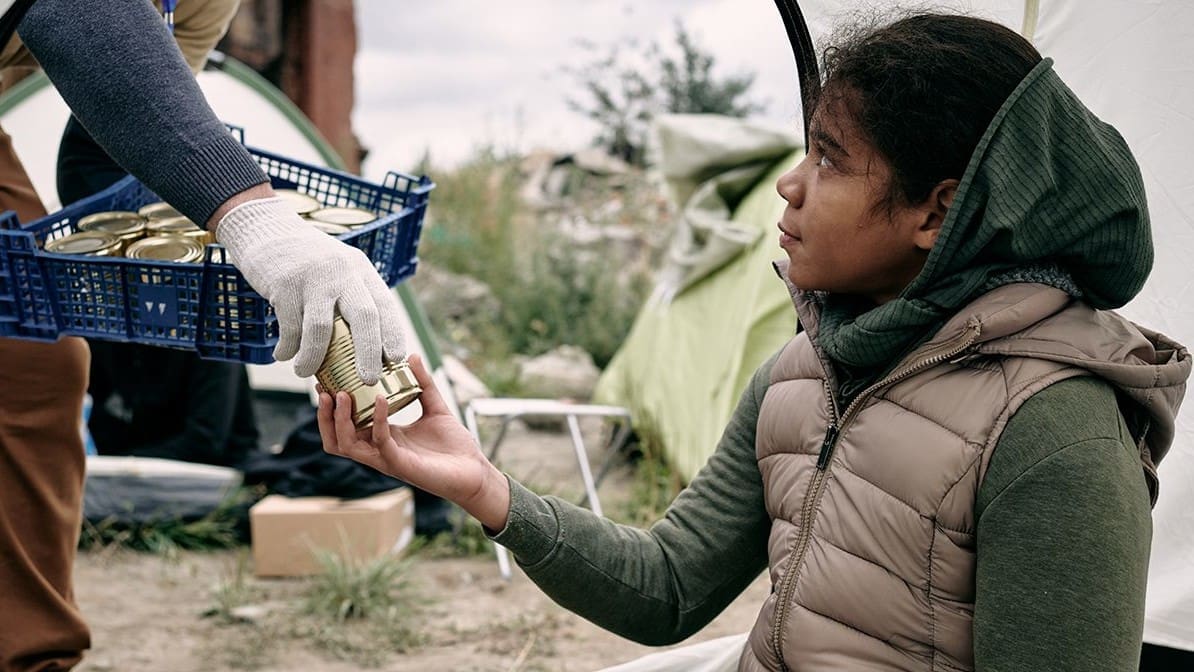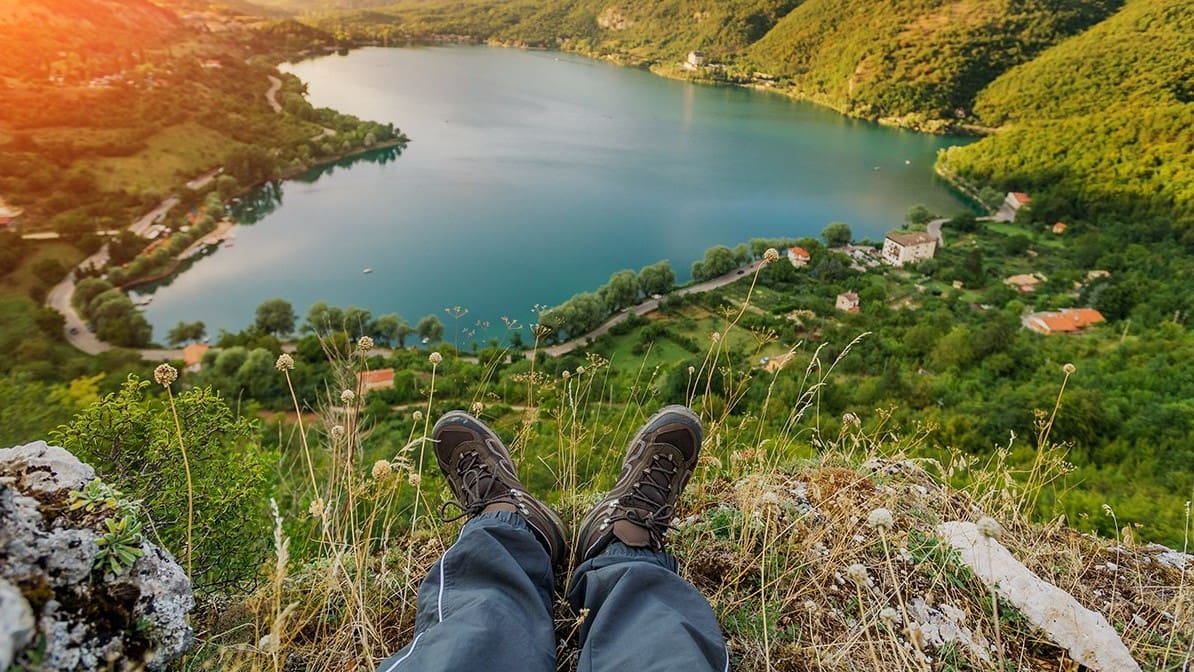- Home
- Spiritual Life
- Serving God Through Serving Others

Serving God Through Serving Others
Serving God and knowing His will is not as difficult as we make it. We often sit and wait for the “word from God,” which He has already provided for us in His word.
The King will reply, “Truly I tell you, whatever you did for one of the least of these brothers and sisters of mine, you did for me” (Matthew 25:40 NIV).
This life in Christ should be the greatest adventure imaginable! What if I told you that God wants to do more in your life than you’ve ever envisioned in your wildest dreams? Does that sound too cliché or extreme? If so, then we’re missing the adventurous truth of Scripture: “Now all glory to God, who is able, through his mighty power at work within us, to accomplish infinitely more than we might ask or think” (Ephesians 3:20). Dreams really do come true, but some Christians have stopped dreaming on God’s level. They forget that they are literally “God’s handiwork, created in Christ Jesus to do good works, which God prepared in advance for us to do” (Ephesians 2:10, NIV).
We are often guilty of asking the Father for too little, and as a result, we experience too little of the work He is doing in the world. Along the way, we sit in the pews and do nothing, which becomes a crime against humanity by the ones whom God put here to serve humanity. None of us usually intend any harm; we simply stop dreaming that we might have a role in affecting eternity — not realizing that doing nothing is affecting the eternal cause, just not in the way God desires. We think that the radical stories of adventure and transformation are reserved for a special few and not for the everyday “normal” believer. We’re missing the adventure because the Christian life has become a misadventure of boring pew dwelling.
How it all began.
I first began traveling to serve the persecuted church around the world. I was still working in marketing and advertising and would use my vacation time to go to other countries to smuggle Bibles and other Christian contraband across their borders. I would also spend time with the underground churches and people facing persecution.
Things began to change for me around the year 2000. I served on the board for an international ministry that serves persecuted Christians around the world. We began receiving what we considered credible reports about what was happening in southern Sudan and the atrocities of a civil war raging there. We decided to take a fact-finding trip to see for ourselves what God might be calling us to do there.
In Feb 2000, we flew from Washington, D.C., to Kampala, Uganda. From there, we drove about fourteen hours to the Sudanese border. The car must have been more than 110 degrees — unbearably hot, even with the windows rolled down. But things got worse as soon as we crossed the border. The conditions of the roads immediately deteriorated, so much so that it took us about three and a half more hours to reach the military checkpoint that was only five miles across the border. Four hours to go five miles.
That was my introduction to Sudan: nothing here was easy.
Over the next two weeks, we began meeting with local government, religious, and military leaders to hear their stories about the unfathomable terrors occurring all around them. The northern government regime known as the Government of Sudan (GOS) had been relentlessly attacking villages in the south. In addition to their own army, they funded various militia groups to carry out similar attacks.
They were opposed by the Sudanese People Liberation Army (SPLA), but in most cases, the GOS was attacking, looting, and destroying villages where there was no SPLA presence. In other words, this was not just a war between soldiers — this was ethnic cleansing targeting civilians. They had already killed an undetermined number of unarmed villagers, often with the help of artillery, bombs, and helicopter gunships.
Their modus operandi was to attack these villages at night, rape and kill the women, kill the men, and sometimes take the children captive to be sold into slavery. At times, they would wipe out the entire village with an unimaginable ruthlessness devoid of basic decency or humanity. The stories we heard disturbed me to my very core in ways I never thought possible. We crisscrossed South Sudan, moving in and out of active war zones and hearing chilling firsthand accounts.
Our primary objective was to evaluate the conditions that the survivors were living in so we could formulate a plan to help. After canvassing the area for two weeks, we couldn’t even call their situation one of mass poverty because the term “poverty” wouldn’t do it justice.
On our last day in the country, we came upon a group of about seventy men, women, and children. Their village had been attacked the night before, and they were the only survivors. There were numerous elderly people among them who were in bad shape. Many of the villagers’ clothes were torn and ripped from running through the jungle bush—and their bodies were cut up, bleeding, and injured.
It was about 120 degrees that day, and this group of survivors huddled together under the fleeting shade of a small copse of trees. The shade stretched no wider than several hundred square feet, and they crammed together in it, trying to find some relief from the blistering heat. Emotionally, they were reeling from the devastation. They had lost loved ones. Children. Husbands. Fathers. Wives. Mothers.
I put myself in their shoes — and I was never the same.
These people were hundreds of miles from food, water, and shelter, and we had absolutely nothing to give them. It was an accident that we had come across them in the first place. I have never felt so helpless. Even if we could have walked to get water for them, they didn’t have any cans or containers to store it — no plates or cups. No clothes. No blankets. No phones. Nothing. No one knew they were there. No one was coming to help. They were standing in the middle of nowhere, still looking back over their shoulders in case their attackers might emerge again at any moment.
And we had to leave them in this state of being — we had to go. `
What happened next is something I remember like it was yesterday. We got into our car, and I sat in the back seat on the passenger side. As we started to pull away, and they were looking back over their shoulders in fear, I looked back at them over my shoulder, in turmoil.
A strong, undeniable thought entered my mind: doing nothing is no longer an option.
Instantaneously, I knew exactly what this meant. I knew that my life was about to change. Up to this point, I had my business and family life and then my ministry life that I engaged in during vacations. But this was the beginning of God speaking to my heart and saying that He was changing the focus of our ministry from the persecuted church to the imminent, felt needs of people in serious trouble. I knew that this meant providing food, water, shelter, medical care, and whatever else was needed to forgotten people huddling in completely unseen places around the world with no hope of anyone coming to their aid. God saw them, and now He had allowed me to see them too — and everything had changed.
From this first trip, Crisis Aid was birthed. As I mentioned earlier, this was the last thing I needed as my life was already overflowing with family, business, and ministry. But God had other plans, which He only revealed as I took another step and another and another. He never let me see the big picture. For if HE did, I would have turned and ran!
Fast forward 20 years. Today Crisis Aid has worked in 11 countries, helping millions of people. We focus our attention on areas where other organizations cannot or will not go. It is there we find the most desperate needs imaginable.
I have often been asked how I know what I am doing is the will of God. The answer is simple. Jesus said in Mathew 25:40, “whatever you did for the least of these my brothers and sisters of mine, you did for me.”
It is not hard or difficult to discern His will for your life, just open your eyes and help someone who needs it and see what God can do from that small beginning.
…
To learn more about Crisis Aid International, contact them at PO Box 510167, St. Louis, MO 63151, or call them at 1-888-740-7779, or visit their website at www.crisisaid.org.
Trending Now
Sign up today for your Inspiration Today Daily Newsletter
Supercharge your faith and ignite your spirit. Find hope in God’s word. Receive your Inspiration Today newsletter now!
Pat Bradley
In September 2000, Pat Bradley witnessed the results of the genocide in South Sudan first hand and knew at that moment "doing nothing" was not an option. His helplessness turned into action as he returned to the United States to raise money for starving people in "no-go zones" where starvation, disease, and danger are a part of everyday life. He soon returned to provide bags of rice to Sudanese people in need. A humble beginning turned into life-saving efforts for people in crisis living in eleven different countries. In 2002, Crisis Aid was officially incorporated. Today, Crisis Aid currently concentrates its efforts in East Africa and the United States. Once Pat took that first step to "do something" others quickly joined, enabling Crisis Aid to deliver a wide variety of resources over the years. Together with its partners, Crisis Aid has provided more than 17.8 million pounds of food, served 2.6 million adults and malnourished children, and 1,378 sex trafficking victims helped, the youngest being 4 years of age. Learn more at CrisisAid.org.
Related Articles
March 2, 2026
How to Move Mountains: 3 Biblical Keys for Stronger Faith
When frustration feels like a wall you can’t break through, it’s natural to wonder what to do next.…
March 1, 2026
Chased by God’s Blessings—How to Attract God’s Blessings and Walk in His Favor
The key to God’s amazing turnaround plan for you to walk in His favor in every area of life. Have…
February 27, 2026
Friendship with Jesus: Finding Joy in the Creator
True joy begins when we know Jesus not only as Savior, but as Creator—and learn to walk with Him in…
February 25, 2026
Finish Strong with a Kingdom Mindset
For if you keep silent at this time, relief and deliverance will rise for the Jews from another…
Next Steps To Strengthen Your Walk
Inspiration Today Newsletter
Supercharge your faith and ignite your spirit. Find hope in God’s word. Receive your Inspiration Today newsletter now!
Christian Articles
Find articles to strengthen your walk and grow your faith. We have a wide range of topics and authors for you.
Submit A Prayer Request
We are here for you. Simply click on the button below to reach us by form, email or phone. Together we will lift our hearts and voices with you in prayer.





